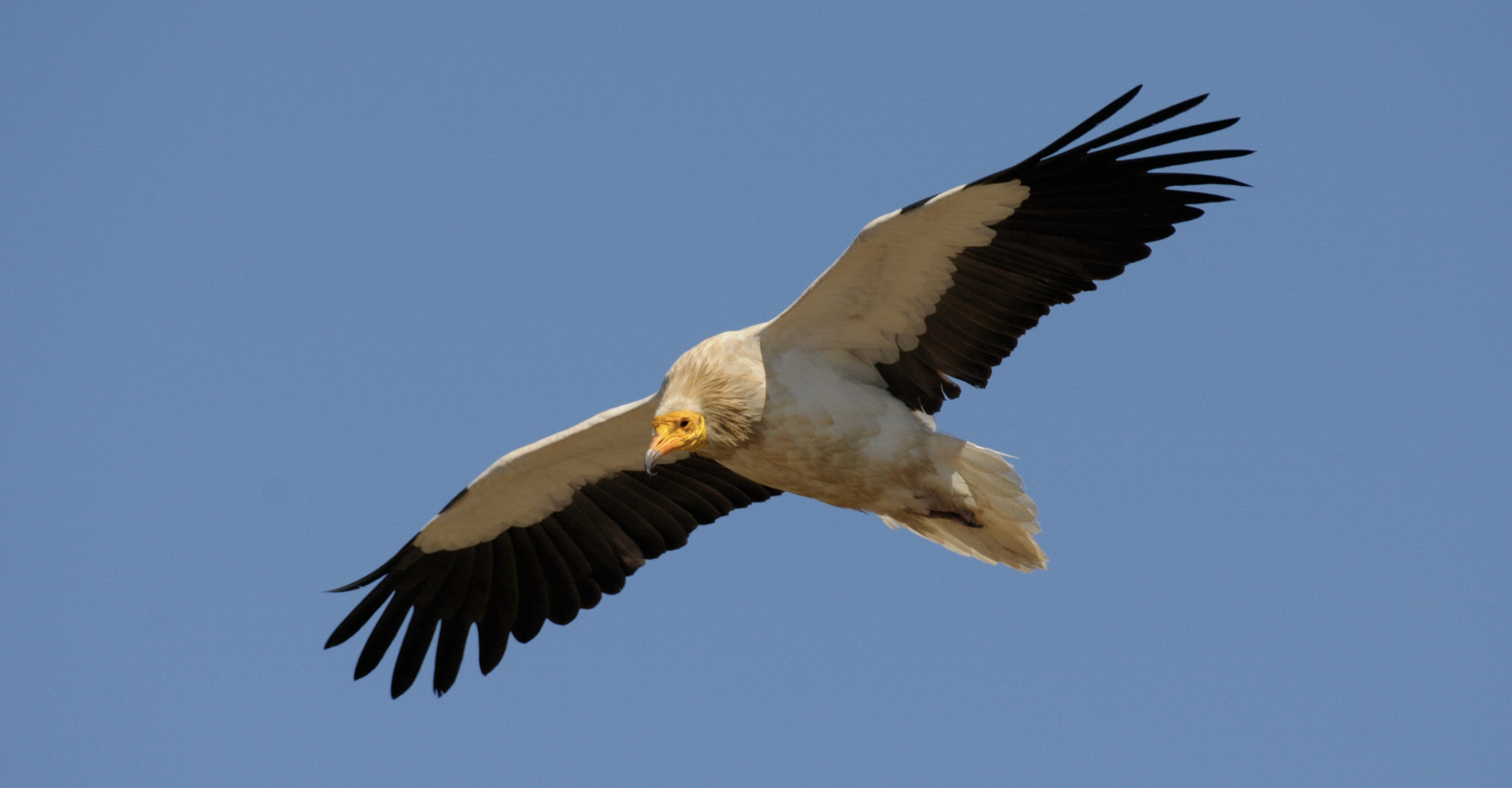
Following the visit of the young Bearded Vulture “Vigo/Flysch” in the UK last year, another vulture species has now made an appearance in the British Isles — an adult Egyptian Vulture. A few days ago on 14 June 2021, observers photographed the vulture on Scilly, possibly marking the first wild occurrence of the species in Britain in 150 years.
Egyptian Vulture observations in the UK
Described as a “once-in-a-century” or “bird of the century” by some, this rare sighting had birders and nature enthusiasts flock to the scene for the chance to get a glimpse of the bird in the Isles of Scilly before it leaves. If this individual is indeed wild and has not escaped from a captive facility in the UK, it would be the first wild record since 1868. It is quite possible that the vulture arrived from Northern France and got disoriented during migration.

There are two accepted British records of the species. An immature that visited Bridgwater Bay, Somerset and Bristol, in October 1825 and another immature observed in Peldon, Essex, in September 1868. Unfortunately, both of these individuals were shot. We hope history does not repeat itself — the Egyptian Vulture is a globally endangered and protected species that plays a valuable part in the ecosystem.
We expect that a lot of people will travel to visit the bird. We urge the public to keep their distance and keep disturbance at a minimum while staying safe and respecting the local COVID-19 measures. If you suspect any illegal activity regarding this bird, please report it to the police on 101, asking for a dedicated Wildlife Crime Officer or seek advice from RSPB Wildlife Enquiries on 01767 693690.
Egyptian Vultures in Europe: population, threats and conservation
In 2007, the species was declared globally ‘Endangered’ by the International Union for the Conservation of Nature’s Red List. In Europe, the population of Egyptian Vultures has declined by a staggering 50 per cent in the last 40 years due to poisoning, poaching, electrocution and collision on electricity infrastructure. Today, the majority of the European population is found on the Iberian peninsula with an estimated 1,490-1,567 pairs, and in Turkey, with about 1,500 pairs, with the remaining populations in France (80 pairs), Italy (10 pairs) and the Balkans (40-50 pairs). There are several projects that the Vulture Conservation Foundation (VCF) and partners are involved in to boost and secure the population of the species in Europe. These include the now-completed LIFE Rupis project in the Douro (Portugal and Spain), the LIFE Egyptian Vulture project in Italy and the Canary Islands, and the Egyptian Vulture New LIFE that spans the Balkans, the Middle East and Africa.


